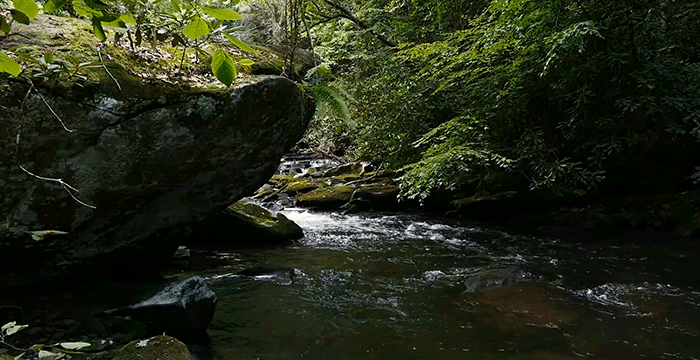|
|
| FAQ/Help |
| Calendar |
| Search |
|
#1
|
|||
|
|||
|
My therapist and I argue almost every session about whether my substance abuse issues are actually an addiction (she's trying to convince me that it is). I do get cravings, mostly when I'm emotionally down, and I do sometimes find it hard to limit my use. But I'm completely functional, and I can go a few weeks at a time without using at all. I do not experience any noticeable physical withdrawal, because as soon as I start experiencing tolerance I will switch substances for a few weeks. I use a few different kinds of drugs, and of course alcohol.
So when is it an addiction versus just abuse? How did you recognize and accept that you were dealing with an addiction? |
|
#2
|
||||
|
||||
|
When it interferes with your day to day life. And when you can't stop and that doesn't mean switching from one substance to another. You definitely have a problem. If its not an addiction it's headed that way. But I'm not a professional so it's only my opinion.
Sent from my iPad using Tapatalk
__________________
Bipolar I, Depression, GAD Meds: Zoloft, Zyprexa, Ritalin "Each morning we are born again. What we do today is what matters most." -Buddha  |
alk2601, AnxietyMaster, SillyKitty
|
|
#3
|
||||
|
||||
|
I agree with Gayle, when it interferes with any area of your life. Having to have something to make us feel better about ourselves, help us to socialize or just to use to deal with feelings of depression, anxiety, fear and so on. If you feel you are not an addict, try and commit to one year of not using. No one can tell you you are an addict, you must make that decision for yourself, but people can usually see a change in our behavior when we use. We can appear perfectly functional but are we really?? If you are an addict you can do nothing about it until you admit it to yourself.
|
alk2601
|
|
#4
|
|||
|
|||
|
Hey
I'm a little like you in that I, generally, swap substances before a serious tolerance builds. However, at the moment, I'm certainly a habitual drinker and some would probably class me as an alcoholic. Anyways, my issue is not so much with 1 drug; it is with reality. I have been getting wasted one way or another since being a young teenager. I'm also functional but I do the bare minimum. I'm sure, if I was in better control of my vices, I would achieve more and be more content and so maybe not feel the need to get fckd up so often. I think it's great you can go a few weeks clean. I wonder whether this is a conscious effort on your part. Like, if a few weeks go by and you just happened to have not used anything, then I don't think you have a problem. However, I think, if you have to make a conscious effort not to use anything, then you do have somewhat of a dependence. I don't think recreational drinking and drug use is necessarily a problem. I think it depends on the individual. If people can be happy without any substances, then great but I don't think total abstinence is essential. I think, if a little dabbling here or there increases the quality of your life, then what's the problem. I'm also maybe biased here and half justifying my own behaviour. For me, certain drugs like mushrooms and mdma have improved my mindset in the long run whilst others, stimulants etc., have had the opposite effect. As for when abuse becomes addiction, I'm not certain on my stance. I think that swapping substances and avoiding physical addiction is better than getting hopelessly addicted to something but there must still be an issue. Best wishes |
alk2601
|
|
#5
|
|||
|
|||
|
Hi,
One of the defining characteristics of addiction is "a state of compulsive engagement in stimuli, despite adverse consequences". The bolded part is the key here, and it can be any kind, not only problems that arise from daily quazi-daily using. Part of the problem with identifying this is the denial that often characterizes it, i.e. the person believes it's not an issue or not serious as an attempt to protect the substance use. I'm talking about this from first hand experience with many years of drinking that got progressively worse. In the beginning it was quite like what you are describing, towards the end it interfered with all areas of my life, including my health. Of course there is no way of predicting what would happen in the future. One thing that people who have struggled with addictions and got into successful recovery typically agree on is that if we start asking such questions and wonder if it's a problem, it usually is a problem. Regardless or how we name or label it. As for how I recognized mine: mostly when I started to have cravings that would not go away easily, and the more time passed by the stronger and more frequent they became. The adverse consequences were already there for me long before I was aware / accepted them but I did not see this at the time, only later when everything was much more severe -- and much harder to change. There is something that is often recommended to people who are hesitant about all this: try to quit all substances for, say, 3 months. See if it's hard to quit and stay quit. How you feel during that time. Then go from there. |
alk2601
|
|
#6
|
|||
|
|||
|
There's a commonly used brief assessment called the CAGE:
Have you made unsuccessful attempts to CUT DOWN? Have you become ANNOYED when others bring up the subject (of your substance use) Have you felt GUILTY about your substance use or things you've done while using? Have you needed/wanted an EYE OPENER the morning following an episode of use? Answering one affirmatively suggests abuse; two yes answers suggests dependence. |
alk2601
|
|
#7
|
|||
|
|||
|
Addiction can be influenced by several factors. If you are facing any difficulties in your personal life due to this habit, then you are addicted to it. Is your family suffering by your substance abuse issue? Do you have anxiety, depression or suicidal thoughts? If yes, then you have to get rid of this habit immediately. Take regular days off from alcohol and drugs to ensure you are not addicted to it. You can also take expert advice and guidance to get rid of the addiction. Some addiction treatment centers like Edgewood in Toronto are providing self-assessment tests and programs for checking the addictive nature of a person. You can search for such programs near your city.
|
|
#8
|
||||
|
||||
|
I hear ya, I question whether or not I have an addiction 'problem'. I definitely have addictive behaviors that take me some effort and struggle to stop. I'd rather not focus on my addictions because I don't think it is the core problem or rather I don't want help with it. LOL, maybe that is where you are? You want therapy to address whatever issues you have, but you are ok with your 'addictions'? Like caffeine is a huge problem for me, but because it is legal I don't think it would come up in therapy where the therapist just wouldn't let it go. KWIM. Sounds like maybe you should look around for a diff. therapist. Just a suggestion.
|
|
#9
|
||||
|
||||
|
When I started using it to feel better, hiding use, and stealing money for alcohol from my husband. Switching substances isn't really helpful as it can just be a cross addiction. I am an addict (clean for 3 years...I relapsed on weed with a friend after being clean for 10 years
 ) AND an alcoholic (sober for three months). ) AND an alcoholic (sober for three months).
__________________
RX and Daily meds: Vraylar 1.5mg daily, Gabapentin 900mg daily General Anxiety Disorder; Panic Disorder (unspecified); Borderline Personality Disorder; Schizoaffective Disorder/Bipolar Type; Fibromyalgia; Sleep Apnea "putting on a brave face, trying to ignore the voices in the back of my head" - Gotye |
|
#10
|
|||
|
|||
|
Hey, I see where your coming from man.
I smoke weed pretty much every day (with some tolerance breaks). I do MDMA every month/two months, used to do MDMA and abused it badly for about two months but I learnt to stop and control it. Learn when to stop and say no. If these substances effect your mood/emotions and it is making a significant impact on you, stop all of it (Weed is usually fine to do regurlarly unless it has a big effect on you) Just think that you are in control not the drug! |
|
#11
|
||||
|
||||
|
I think that two of the most common misconceptions about addiction are:
a.) it *always* leads to poverty, homelessness, joblessness, or to any other degree of not being able to function. (it didn't for me, although it certainly would have gone that way at the rate I was going.) b.) addicts use every single day. (not always the case.) ultimately, only you can say whether or not you're an addict.
__________________

|
beauflow
|
|
#12
|
|||
|
|||
|
Perhaps how we define it is not so important. I think we often get lost in definitions... and since many people cant even agree on how to define addiction, whether or not something is an addiction is going to be equally difficult to pin down (and kind of pointless).
Perhaps, instead, just focus on how it is effecting your life and what (if anything) you want to do about it... For instance, I have addictions I am not going to give up, and I have things in my life that arent addictions that I want to work at giving up. Often, I think, we get so stuck on how to label something we miss the purpose of the label. As long as you are honest with yourself, I believe, you will know what to do. It is just a matter of getting at that honesty... not easy for addictions or any difficulty in life. Good luck! |
alk2601
|
|
#13
|
|||
|
|||
|
Quote:
|
|
#14
|
|||
|
|||
|
Read Caroline Knapp's (RIP) book, "Drinking: A Love Story" for a thorough expose on a highly gifted and functional person with alcohol dependence. She has a great section on her perceptions of being a functional alcoholic.
|
|
#15
|
|||
|
|||
|
Quote:
|
| Reply |
|
|